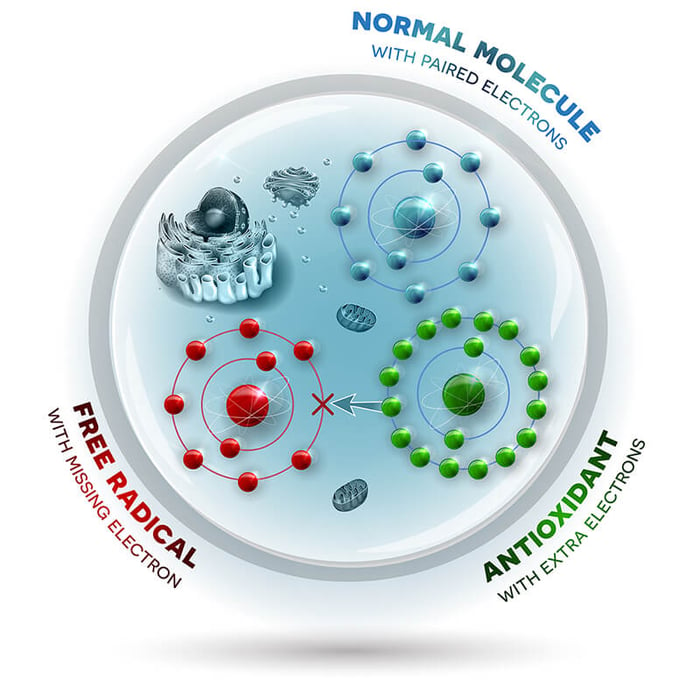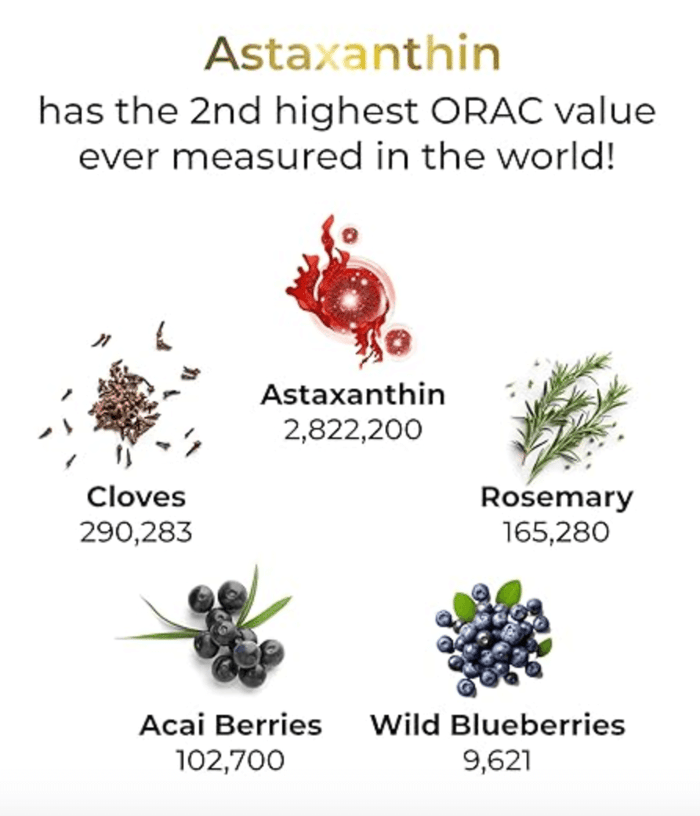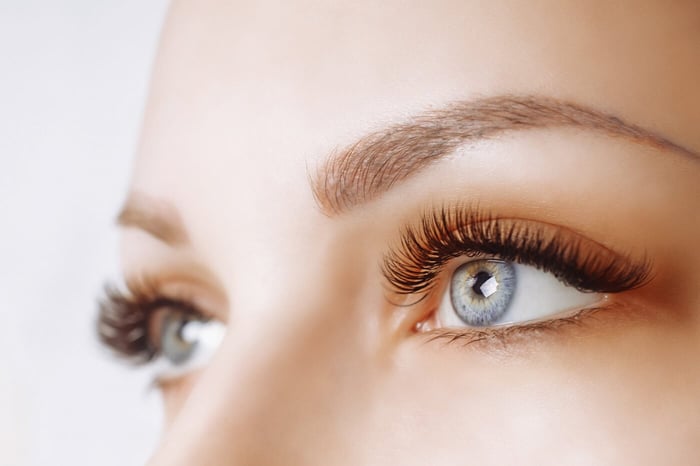In the quest for youthful, radiant skin, most turn to sunscreen as the ultimate defense against premature aging, but did you know antioxidants are even more important to protect skin cells, preserve skin structure and function, keeping it resilient, glowing, and youthful?
Sunscreen only addresses one skin stressors—protection against UVA and UVB rays. Unlike ultraviolet (UV) light, which has long been recognized for its role in skin damage and aging, blue light penetrates the skin more deeply, reaching the dermis. This deep penetration causes oxidative stress, triggering premature aging and potentially worsening hyperpigmentation and inflammation.
In our modern world our skin is constantly under attack from a myriad of factors, many of which sunscreen cannot defend against. These include LED lights, pollution, blue light, infrared radiation, and toxins. Enter antioxidants: the unsung heroes of skincare who combat oxidative stress and protect your skin at a cellular level.
Let's explore why antioxidants are essential for skin health, how they work, and why high-ORAC antioxidants are the skin's ultimate saviors.
Understanding Oxidative Stress and Its Impact on Skin
What Is Oxidative Stress?
Oxidative stress occurs when an imbalance between free radicals—unstable molecules produced by environmental factors and metabolism—and your body's ability to neutralize them with antioxidants. Free radicals damage skin cells, leading to inflammation, collagen breakdown, and signs of premature aging, such as wrinkles, fine lines, and dullness.
Modern Skin Stressors
Here are numerous sources of oxidative stress, including:
- Infrared radiation (IR): Found in sunlight, IR penetrates deeper than UV rays ( past the epidermis and the dermis), causing collagen degradation.
- Blue light (HEV): Emitted by screens, blue light contributes to pigmentation and oxidative stress. "Blue light penetrates deeper than UV rays, breaking down collagen, leading to premature aging, wrinkles, and inflammation. It also disrupts melatonin, messing with your sleep and straining your eyes!"🧪 Text on screen: "Scientific studies confirm blue light exposure accelerates skin aging (Duteil et al., 2020) and affects sleep (Chang et al., 2015)." The effects of blue light on skin and eyes are cumulative, meaning the damage builds over time.
- LED light: While blue light is naturally present in sunlight, the problem arises from artificial sources like LED screens (TV), smartphones, and modern lighting. These artificial sources emit concentrated and prolonged doses of blue light that our bodies were never designed to handle.
- Pollution: Airborne toxins generate free radicals that impair skin barrier function.
- Smoke and toxins: Both environmental smoke and tobacco smoke toxins accelerate skin aging.
- Stress: Emotional stress increases cortisol, which amplifies oxidative stress.
This onslaught of aggressors calls for a holistic approach to skin protection—one that goes beyond sunscreen.
The Role of Antioxidants in Skin Health
How Antioxidants Work
Antioxidants are molecules that neutralize free radicals, preventing them from damaging skin cells. By donating electrons to stabilize free radicals, antioxidants halt the chain reaction of oxidative stress. This protective action preserves skin structure and function, keeping it resilient, glowing, and youthful.
Benefits of Antioxidants for Skin
- Prevention of premature aging: By neutralizing free radicals, antioxidants protect collagen and elastin, the proteins responsible for skin elasticity and firmness.
- Reduced inflammation: Antioxidants calm redness and irritation caused by environmental stressors.
- Enhanced skin barrier: They strengthen the skin's natural defense system, improving hydration and reducing sensitivity.
- Brightening effects: Many antioxidants, such as organic astaxanthin and vitamin C , reduce pigmentation and promote even skin tone.
Why ORAC Matters in Antioxidants
What Is ORAC?
ORAC, or Oxygen Radical Absorbance Capacity, measures a substance's antioxidant power.
The higher the ORAC value, the more effective the antioxidant is at neutralizing free radicals. High-ORAC antioxidants offer superior protection against oxidative stress, making them a cornerstone of anti-aging skincare.
The Power of High-ORAC Antioxidants
Some of the most potent high-ORAC antioxidants include:
- Organic Astaxanthin: A carotenoid derived from algae, astaxanthin has 6,000 times the antioxidant power of vitamin C. It protects against UV-induced damage, improves skin elasticity, and reduces wrinkles.
- Organic Clove: This spice contains eugenol, a powerful antioxidant with anti-inflammatory and antimicrobial properties. Clove has one of the highest ORAC values of any natural substance.
- Cinnamon: Packed with polyphenols, cinnamon fights free radicals and boosts collagen production, promoting firm, youthful skin.
Topical vs. Internal Antioxidants: Why You Need Both
Topical Antioxidants
Applying antioxidants directly to the skin delivers targeted protection where it's needed most. Look for skincare products containing high-ORAC antioxidants like organic astaxanthin, organic clove, organic rosemary ( found in luxe lotion), and organic thyme (found in luxe 4-1 cleanser). These formulations shield skin from environmental damage and enhance repair mechanisms. We specifically formulated our concentrated antioxidant serum with several high ORAC antioxidants to help shield your skin. 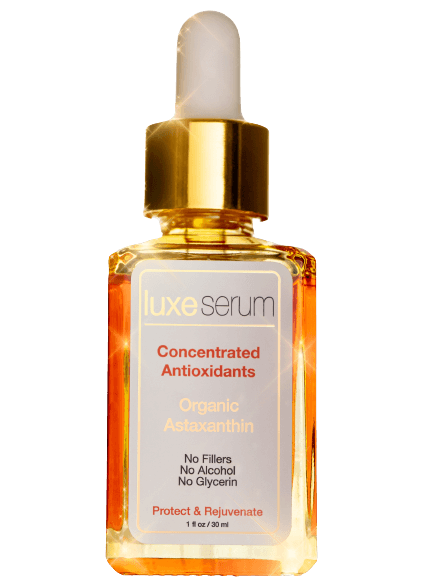
Internal Antioxidants
Consuming antioxidant-rich foods and supplements supports skin health from within. High-ORAC ingredients such as organic astaxanthin, organic herbs like organic clove and organic cinnamon, along with antioxidant-rich fruits like berries, can be added to your diet. This dual approach fortifies your skin's defenses against oxidative stress. We formulated our Organic Astaxanthin supplement with organic cloves to give your skin and cells protection from the inside out.
The Science Behind High-ORAC Antioxidants
Organic Astaxanthin: The Ultimate Skin Protector
Studies show that astaxanthin protects skin from UV damage and improves elasticity, hydration, and overall skin texture. A 2012 study published in Carotenoid Science found that astaxanthin significantly reduced the appearance of wrinkles and improved skin moisture levels after just 8 weeks of use. It is highly recommend to only use and consume certified organic astaxanthin to ensure purity and potency. Astaxanthin labeled as "Natural" can be grown with nitrates and contain contaminates.
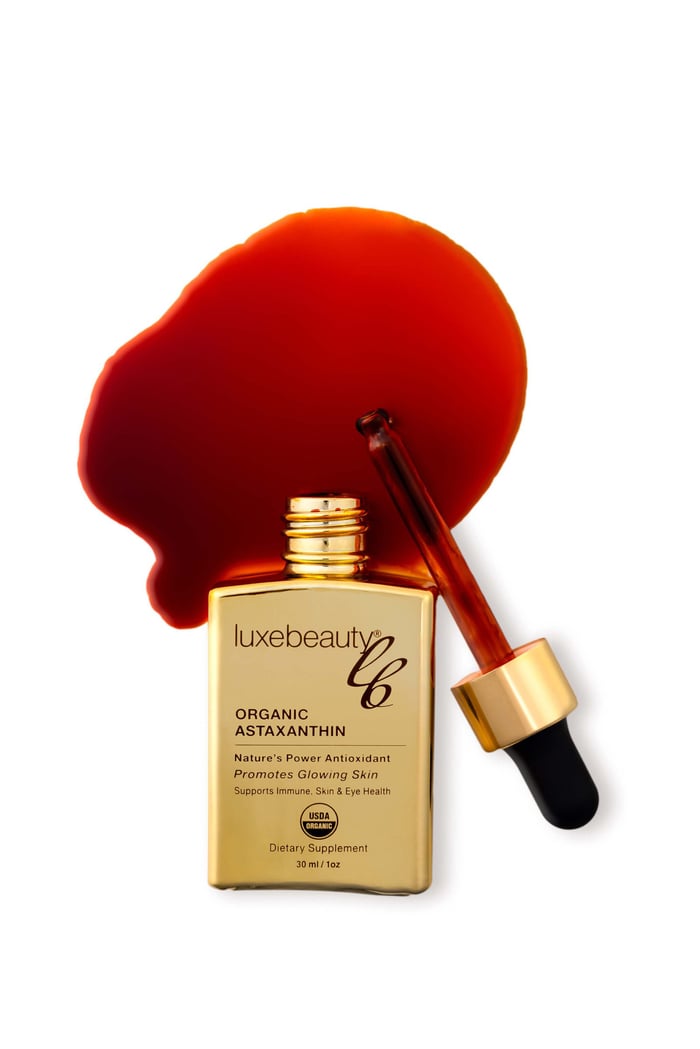
Clove: Nature's Antioxidant Powerhouse
Research published in the Journal of Agricultural and Food Chemistry highlights clove's exceptional ORAC value—more than 10 times that of blueberries. Its eugenol content combats oxidative stress and reduces inflammation, making it ideal for sensitive or acne-prone skin. You can find organic clove in our concentrated antioxidant serum and organic astaxanthin supplement.
Cinnamon: The Collagen Booster
A study in the Journal of Medicinal Food reported that cinnamon's polyphenols stimulate collagen synthesis. This action helps maintain skin firmness and reduces the appearance of fine lines. Our Lip Plumper is formulated with organic cinnamon oil.
Incorporating Antioxidants Into Your Routine
1. Topical Skincare Tips
- Apply antioxidant products in the morning to protect against daily environmental stressors and use at night for skin repair and rejuvenation.
2. Dietary Recommendations
- Sprinkle ground clove or cinnamon into your smoothies, coffee, or fruits.
- Incorporate antioxidant-rich foods
- Consume highly bio-available liquid certified organic astaxanthin
3. Lifestyle Adjustments
- Reduce exposure to blue light by using screen protectors or enabling night mode.
- Replace all LED light with incandescent light bulbs.
- Manage stress through mindfulness practices, as stress increases oxidative damage.
- Avoid smoking and minimize exposure to pollution whenever possible.
Why Antioxidants Are the Future of Skincare
As our understanding of oxidative stress deepens, it's clear that antioxidants are the key to comprehensive skin protection. Unlike sunscreen, which only addresses UV-induced damage, antioxidants shield your skin from a broad spectrum of modern stressors, including infrared radiation, pollution, and blue light. By incorporating high-ORAC antioxidants like astaxanthin, clove, and cinnamon into your skincare and diet, you can achieve glowing, youthful skin that's resilient against the test of time.
Don't let free radicals rob you of your glow. Antioxidants are more than just a trend—they're necessary for anyone serious about maintaining healthy, youthful skin. Protect your skin beyond UVA and UVB with the power of high-ORAC antioxidants. Your future self will thank you.
References:
Astaxanthin Supplementation and Skin Health: A systematic review published in Carotenoid Science examined multiple clinical studies and concluded that astaxanthin supplementation improved skin texture, reduced wrinkles, and enhanced moisture content. The review also noted astaxanthin's protective effects against UV-induced skin damage.pubmed.ncbi.nlm.nih.gov
Astaxanthin's Anti-Aging Effects: A meta-analysis in the journal Nutrients found that oral astaxanthin supplementation significantly improved skin moisture and elasticity. The study suggested that astaxanthin holds promise as a cosmetic agent for reducing skin aging. mdpi.com
Antioxidant Activity of Clove: Research indicates that clove exhibits one of the highest antioxidant activities among spices, attributed to its rich phenolic content, including compounds like eugenol. This high antioxidant capacity suggests potential benefits in protecting skin cells from oxidative stress.pmc.ncbi.nlm.nih.gov
ORAC Values of Spices: Data from the USDA Agricultural Research Service highlights that ground clove and cinnamon possess exceptionally high Oxygen Radical Absorbance Capacity (ORAC) values, indicating their potent antioxidant properties. High-ORAC substances are effective in neutralizing free radicals, thereby potentially preventing oxidative damage to the skin.ars.usda.gov
Astaxanthin's Protective Effects on Skin: A study published in the Journal of Cosmetic Dermatology reported that astaxanthin supplementation led to significant improvements in skin elasticity and reduced the appearance of fine lines and age spots. The natural antioxidant properties of astaxanthin were credited for these skin health benefits. onlinelibrary.wiley.com
Duteil, L., Queille-Roussel, C., Lacour, J. P., & Verschoore, M. (2019). "The effects of visible light on the skin." Journal of Clinical and Aesthetic Dermatology, 12(1), 36–44.
Nakashima, Y., Ohta, S., & Wolf, A. M. (2017). "Blue light-induced oxidative stress in live skin." Free Radical Biology and Medicine, 108, 300-310.


